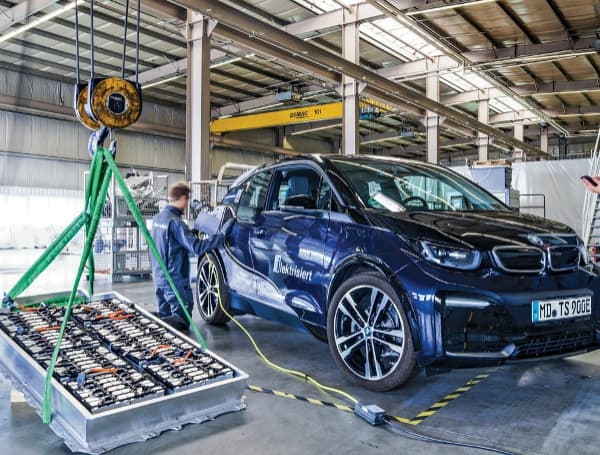Thomas Catenacci
Lithium — a mineral that is key for electric car batteries — continues to rise in price, jeopardizing the ongoing transition to renewable energy outlined by Western governments.
The cost of lithium has skyrocketed more than 250% over the last 12 months, hitting its highest level ever, according to an industry index from Benchmark Mineral Intelligence. While the cost of manufacturing a lithium-ion battery for an electric vehicle (EV) has fallen sharply over the last decade, the decline has slowed in recent months due to rising lithium costs.
The average cost of an EV battery pack fell to $157 per kilowatt hour, a measure of energy capacity, in 2021, the Department of Energy said in October. That means a typical EV battery is between $6,000 and $7,000, a BloombergNEF analysis showed.
Battery costs would need to come down to $100 per kilowatt hour for overall EV prices to compete with traditional internal combustion engine cars, according to Bloomberg. The price of lithium will play a large role in achieving that goal.
“It’s like being in a hot real-estate market,” Lithium Americas CEO Jon Evans told The Wall Street Journal. “There’s a mad scramble.”
Lithium Americas has proposed to mine lithium on a dormant volcano in Nevada. However, the firm has yet to mine any lithium due to pushback from environmentalists and ongoing lawsuits related to allegations that the federal government approved the company’s mining permit too quickly.
If the mine begins production, it could help reduce U.S. reliance on foreign lithium and increase supplies at a time when demand for the mineral is surging.
The U.S. has roughly 750,000 metric tons of lithium that can be mined, but it produces very little and imports tens of thousands of metric tons worth from Argentina, Chile, China and Russia, according to the United States Geological Survey (USGS). The USGS report withheld specific U.S. data to avoid disclosing propriety information belonging to companies like Lithium Americas.
Converting and processing lithium into the actual components of an EV battery may also prevent prices from falling, Bloomberg reported. China currently dominates the battery processing market, and it is responsible for about 80% of global battery chemical refining capacity.
Meanwhile, Western leaders have vowed support for aggressive measures to push consumers toward purchasing EV’s as their next new vehicle. In the U.S., President Joe Biden outlined a plan for 50% of new car purchases to be zero-emissions by 2030.
Check out Tampafp.com for Politics, Tampa Area Local News, Sports, and National Headlines. Support journalism by clicking here to our GoFundMe or sign up for our free newsletter by clicking here.
Android Users, Click Here To Download The Free Press App And Never Miss A Story. It’s Free And Coming To Apple Users Soon.
